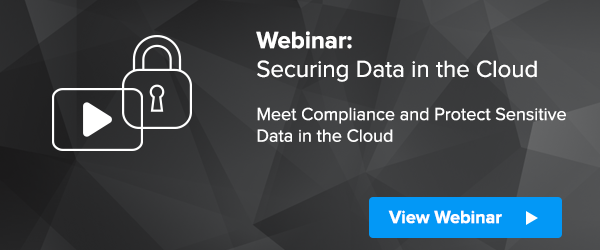You should be concerned about storing encryption keys in the cloud, but probably not for the reason you think.
 One of the most common questions I get about cloud encryption key management is “Who has access to my encryption keys?” As customers migrate to Microsoft Azure and Amazon Web Services (AWS), it is really good to understand the policy implications of cloud service provider encryption key management services. And it is not a topic that cloud service providers like to discuss very much.
One of the most common questions I get about cloud encryption key management is “Who has access to my encryption keys?” As customers migrate to Microsoft Azure and Amazon Web Services (AWS), it is really good to understand the policy implications of cloud service provider encryption key management services. And it is not a topic that cloud service providers like to discuss very much.
The truth is that common key management services such as Microsoft Azure Key Vault and Amazon Web Services Key Management Service (KMS) are under the control and management of Microsoft and Amazon. The user interfaces and APIs available to customers on these cloud platforms are easy to use and very inexpensive, or even free. So they are very attractive to new cloud customers.
So what is the problem?
First, I don’t feel there is a problem with the security implementation of key management services by these cloud service providers. They have great security teams and I believe they take care in both the implementation of the security systems as well as in the hiring and management of the teams that support the key management systems. And you can’t really argue with the cost model of key management services. Cheap or free is always attractive.
The problem originates in the fact that the cloud service provider creates, manages, and owns the actual encryption keys that protect your data. This means that they are subject to law enforcement warrants and national security letter requirements to surrender your data and encryption keys. And you may not be notified of these actions. This is not an issue just in the United States. Many national governments have various legal rules that require cooperation by cloud service providers. Many cloud companies try to be transparent about these law enforcement activities, but transparency can be blocked in many cases.
Should cloud service providers refuse to obey lawful requests for information about their customers? Of course not. We all live in a nexus of laws and regulations that are largely designed to protect us. If a law enforcement warrant is lawfully obtained a cloud service provider would be acting responsibly by complying with a request for copies of your data and your encryption keys. And they may not be able to inform you of that action.
And there is the problem. You might not know what is happening to your information stored in the cloud.
Any responsible executive team in a business or organization would want to know if there was a potential problem with an employee, group of employees, company policy, or operation in a local, federal or international environment. Executives want to be aware of potential problems and respond to them as quickly as possible. In fact, this is a core governance requirement. And they can’t act quickly and responsibly when they are not aware of a problem. And that’s the rub. If you give your cloud service provider access to your encryption keys you may lose the ability to know when a problem arises.
Is there a solution to this problem?
By deploying a third-party encryption key management solution in the cloud or on-premise in your own data center you retain exclusive ownership to the encryption keys and data they protect. Cloud service providers cannot respond to law enforcement and intelligence service actions because they have no administrative access to the encryption keys. This doesn’t mean that law enforcement and intelligence services won’t be interested in obtaining your information. But it does mean that they will have to notify you of their desire to obtain your data. Of course, as a responsible business you will want to comply with these requests. But you will do so with full knowledge of the activity and will the full advice of your own legal counsel. And the process will probably provide you with some clues as to the reason for the action. That’s something you will really want to know.
Retaining custody of your encryption keys means retaining control of your organization’s governance and risk-management controls. And that’s a good thing.
Knowing is better than not knowing.

